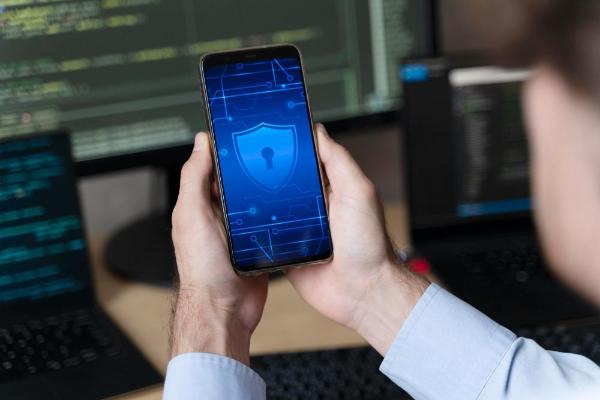The Importance Of Call Recording Security
In today's rapidly evolving digital landscape, the way we communicate has transformed dramatically. The ability to forge and sustain social connections globally is a remarkable advancement. However, the issue of online privacy continues to be a significant challenge for both individual users and businesses.
Compromising on security and privacy for the sake of convenience in online communication is unnecessary. When you record calls, you end up with a ton of call recording data that is valuable to hackers and a threat to your business. Even if you already make secure calls, the security of your phone call records should be a priority.
Why Should You Protect Your Call Recordings?
Firstly, while recording conversations, the company stores customer data. Working with them is strictly controlled by legislation, such as GDPR and others. Failure to comply will sooner or later result in a serious fine. Secondly, data protection is necessary to prevent information leakage. If data is stolen, this can lead to legal costs, extortion and damage to the brand's reputation.
How to Record Call Recording Data?
You have several options for how to implement record phone calls. A rather complex, expensive and functional way is to use VoIP telephony. This approach also requires all employees to be in the office and answer calls from their desk.
The second way is to use the app to record phone calls. Similar applications are now available, and one of the most reliable is Call Recorder for iPhone with additional functions for protecting call recordings. The advantages of using Call Recorder for iPhone: the ability to work remotely, free management of recordings, minimal cost of implementation and work with the service. Everyone chooses their own path.
Call Recording Protection
- Update Software Regularly
To enhance your digital security, it's crucial to keep your software and apps up to date. Outdated versions are more susceptible to hacks. Make it a habit to regularly update your tools, as not all updates auto-install. Updates fix known security bugs, reducing your vulnerability. Always check for and install any pending updates promptly to safeguard your online activities.
- Use a Reliable Proxy or VPN
To ensure your online conversations are shielded from cyber threats, it's crucial to go beyond basic security measures. Investing in top-tier security software is a step towards safeguarding your data from potential cyber-attacks. Opting for a trustworthy proxy or VPN can elevate your online privacy and security, allowing for safer internet calls. However, choosing the right one is essential, as the wrong choice could compromise your safety.
- Limit File Sharing
Enabling file sharing significantly enhances communication and collaboration during online meetings. However, it's crucial to recognize that it also introduces potential security risks. Unauthorized access to information and the distribution of malicious files can pose significant threats. To mitigate these risks, consider pausing file sharing temporarily or restrict it to select members who need to share critical documents. This approach minimizes the chances of malware distribution and ensures sensitive information remains secure.
- Use a Strong Password
Passwords are crucial for safeguarding the security of online meetings, ensuring your personal and professional data remains protected. With the increasing incidents of unauthorized access to online conferences, implementing robust passwords becomes indispensable. The integrity of conference call encryption heavily relies on this security measure. To enhance security, it's recommended to generate new, complex passwords for each meeting and distribute them shortly before the session begins.
Risks of Not Protecting Call Recording Data
Imagine this – you’re sailing smoothly until a leaky call recording system starts sinking your ship by exposing sensitive information. Suddenly, you're navigating through choppy waters with privacy law violations ahead, dodging compliance icebergs while trying not to damage your brand or fight off legal sharks all because staying competitive got harder than expected. Here's a closer look at these potential issues and recommended actions if your call recording safeguards are inadequate:
- Cybersecurity Threats: Inadequate security measures for your call recording system might leave it susceptible to attacks and unauthorized breaches. Imagine if the wrong people could listen in on confidential call recordings. Suddenly you're dealing with a financial mess, legal headaches, and your good name dragged through the mud.
- Privacy Infringements: Let's say you slip up and don't safeguard those conversations your system holds dear. Well, that's a direct flight to trouble town, risking breaking some heavy-duty rules – think GDPR across the pond or HIPAA when it comes to medical info.
- Regulatory Fines: Ignoring the security requirements specified by laws and industry standards for call recording can attract fines and legal issues. If you're part of an organization, remember this: failing to properly secure your recorded conversations might just land you in hot water with regulatory folks who can issue fines.
- Reputational Harm: A breach in call recording security can severely damage your company's reputation. Confidence from customers and stakeholders in your data protection capabilities may wane, potentially resulting in lost clientele and unfavorable media attention.
- Legal Challenges: If call recording practices don't respect privacy, folks might just sue for compensation if their personal space is invaded.
Conclusion
When a company ignores risks, it is only a matter of time before one of them materializes. Businesses can and should prepare to meet regulatory requirements for working with customer data, and protect them accordingly. Otherwise, the fine or consequences of hacking will be more expensive.

